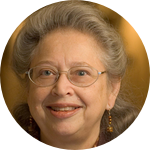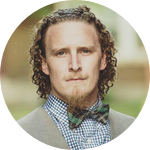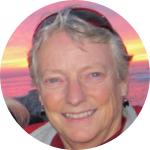About This Project
When Zachary Dearing sought refuge from Hurricane Harvey, he didn’t expect to be managing a storm shelter. He and a small band of volunteers kept others calm, dealt with leaks, and saved lives. None had leadership or emergency training.
What enabled Zachary, a writer and actor, to rise to leadership when others had not? How did the group succeed?
This ethnographic case study will dig past the obvious to reveal the deeper actions and motivations of Zachary and others at the shelter.
Ask the Scientists
Join The DiscussionWhat is the context of this research?
In any major disaster, individuals and communities must fend for themselves for days, even weeks. A successful outcome often occurs when an individual has taken the initiative to coalesce a group of strangers to work together to everyone’s benefit. Often, they are not in leadership positions, have no interest in long-term leadership, and retreat when the crisis is over. Somehow, the spontaneous leaders have a mindset that gets them to step out of the crowd, and skills that enable a group to improvise collective action effectively. In contrast, many who are normally in leadership positions do not function well in the chaos of disaster. The question is why?
This work lies at the intersection of heroic action (individual action), and leadership (long-term collective action) research.
What is the significance of this project?
A reality of disaster is that the planned response system—police, fire, FEMA, Red Cross, etc.—may take days or weeks to reach everyone. Consequently, communities must be ready to help themselves. Those who do fare better in all measures than those who wait for help from others.
Conventional disaster preparedness aims to make everyone ready for all eventualities. However, it is impossible for most people, whose daily lives are already full, to prepare fully for a situation they may never face. Yet some individuals are able to initiate an improvised response in the event.
Understanding how spontaneous leadership leads to a successful improvised response is the first step toward preparing ordinary people to be unprepared rather than being trained for every eventuality.
What are the goals of the project?
The goal of this study is to gain a systematic understanding of the key events, people, and decisions surrounding leadership of the Live Oak Elementary School shelter, as experienced by the individuals involved.
This study will help form testable hypotheses to the key questions of
- What situational factors trigger spontaneous leadership?
- What personal qualities distinguish someone who rises to leadership from someone who does not?
- What leadership behaviors elicit successful group improvisation?
Reliable answers to these questions will, ultimately, answer the overarching question of
- How can individuals be prepared to help the people around them improvise an effective response?
Budget
The budget will be used to cover travel expenses, transcription of interviews, and an updated version of Transana (qualitative analysis software).
The stretch funds will help us to develop and run live-action experiments, such as this pilot. In these, we can observe individual and group behaviors in a more controlled setting, and test our hypotheses about spontaneous leadership.
TRAVEL
I travel in the R/V Dorothy Louise, a 19' motorhome. This allows me to be self-contained. I can stay close to the affected area, where available motel rooms and rental cars are needed by people coming to help.
TRANSCRIPTION
Transcription of audio and video recordings are vital to in-depth analysis. Using a professional service for transcription will enable me to start analysis within days rather than months. Automatic transcription software does not work well with these types of recordings due to multiple speakers, emotionally charged speech, and uncontrolled background noise.
Endorsed by
 Project Timeline
Project Timeline
Field interviews will be conducted immediately, in order to ensure that people's memories are fresh. After preliminary data review and reflection, followup interviews will be conducted as needed.
The data collection phase will then be followed by extensive in-depth analysis, and preparation of a detailed report which will form the basis for an academic paper, training recommendations, and further research proposals.
The timeline provided is subject to delays due to paid projects.
Sep 21, 2017
Project Launched
Sep 28, 2017
Initial data collection complete
Oct 22, 2017
Data review and collation complete
Nov 20, 2017
Preliminary data analysis complete
Dec 02, 2017
Followup interviews complete
Meet the Team
Team Bio
Creative Crisis Leadership is a nascent non-profit effort aimed at preparing ordinary people to improvise effective crisis response, by grounding experiential training in research and reality.
Zeno Franco, Associate Professor at the Medical College of Wisconsin, is a research consultant for for Creative Crisis Leadership. Dr. Franco studies the social psychology of heroic action and disaster management. He is Chair of the Heroic Imagination Project.
Susanne Jul
I am a researcher in the field of community disaster response. I apply social psychology and ethnographic research to disaster preparedness and response. I’m particularly interested in how ordinary people rise to leadership in crisis situations.
My past projects in disaster research include studying ways to improve information flow from village health workers in Cambodia and Laos to support early detection of emerging infectious diseases, understanding technological adeptness of community-level disaster responders in California to integrate high- and low-tech tools for field work, and understanding communication behaviors of expert search-and-rescue teams.
My interest in improvised disaster response stems from my experience as a volunteer with the American Red Cross. In the past 16 years, I have deployed to such major disasters as Hurricanes Katrina and Ivan, and worked with government agencies and community organizations to prepare for and respond to local incidents. Throughout, I have seen first-hand that the vast majority of the people who respond to disaster are ordinary people who just happen to be there.
My prior research has yielded many publications related to disaster and to human-computer interaction. I had the honor of a year-long National Research Council Research Fellowship at the Pacific Disaster Center in Hawaii. In professional service work, I was on the founding board of the International Association for Information Systems for Crisis Response and Management (ISCRAM), and currently serve as Chair of the ISCRAM Advisory Council. Prior to getting my PhD, I had careers in user interface design, software engineering, and theatre.
This project is part of Creative Crisis Leadership, a non-profit effort devoted to preparing the world to be unprepared.
DISCLAIMER
Experiment.com has awarded me a “Slowpoke” badge. They assure me that this is not a character judgement, but rather indicates that a year has elapsed between my backing projects.
Additional Information
WHY PICK THIS CASE?
Zachary and the Live Oak shelter are important as a case study because
- The case is confirmed rather than anecdotal.
- One of the challenges to studying real cases of spontaneous leadership is finding them. Time and money is easily wasted searching disaster area for likely instances.
- The case is contemporary rather than historical.
- I found out about it within days, was able to get in touch with Zachary very quickly, and I was able to clear my calendar for several weeks.
- The circumstances are right.
- While Rockport was hit hard, residents received help quickly. I am here as people are returning, and water and electricity will have been restored. People should be able to give me a bit of their attention, and I am not consuming critically scarce resources.
- Rockport has a population of 10,000. Small enough that people know people, making it possible to find the ones we want to talk to.
- Zachary was leading at the shelter for more than 24 hours. So he couldn’t just give directions, the group had to become a functioning collective.
WHAT HAPPENS NEXT?
The results of this study will be instrumental in further work to
- Develop a theory of spontaneous leadership that describes necessary pre-conditions, individual characteristics, and successful behaviors of spontaneous leaders and followers. Subsequent investigations will then validate, disprove, or refine the theory and its elements.
- Design immersive learning experiences that provide people with opportunities to discover and practice behaviors that underlie successful improvised response, while also learning conventional preparedness measures.
- Obtain grants and other funding to develop training and conduct further research.
Project Backers
- 37Backers
- 130%Funded
- $5,021Total Donations
- $135.70Average Donation



